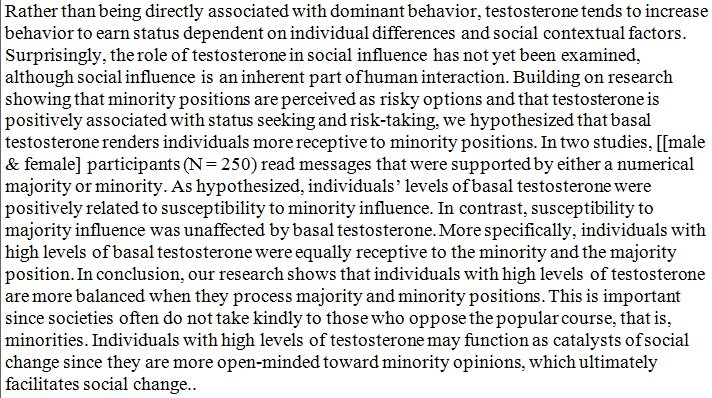SAGE Journals: Your gateway to world-class research journals
Subscription and open access journals from SAGE Publishing, the world's leading independent academic publisher.
"
Basal Testosterone Renders Individuals More Receptive to Minority Positions
Abstract
Social influence is an inevitable part of human social interaction. Although past research has demonstrated that testosterone has a key role in social interaction, no study has examined its role in social influence so far. Building on previous research showing that minority positions are perceived as risky options and that testosterone is positively associated with status seeking and risk-taking, we hypothesized that basal testosterone renders individuals more receptive to minority positions. In two studies, participants (total N = 250) read messages that were supported by either a numerical majority or minority. As hypothesized, individuals' levels of basal testosterone were positively related to susceptibility to minority influence. In contrast, susceptibility to majority influence was unaffected by basal testosterone. Given the importance of minorities for innovation and change within societies, our results suggest that individuals with high levels of testosterone may play an important role as catalysts of social change.

"
Fascinating, and follows logically. You don't change the world with tiny cohones.







